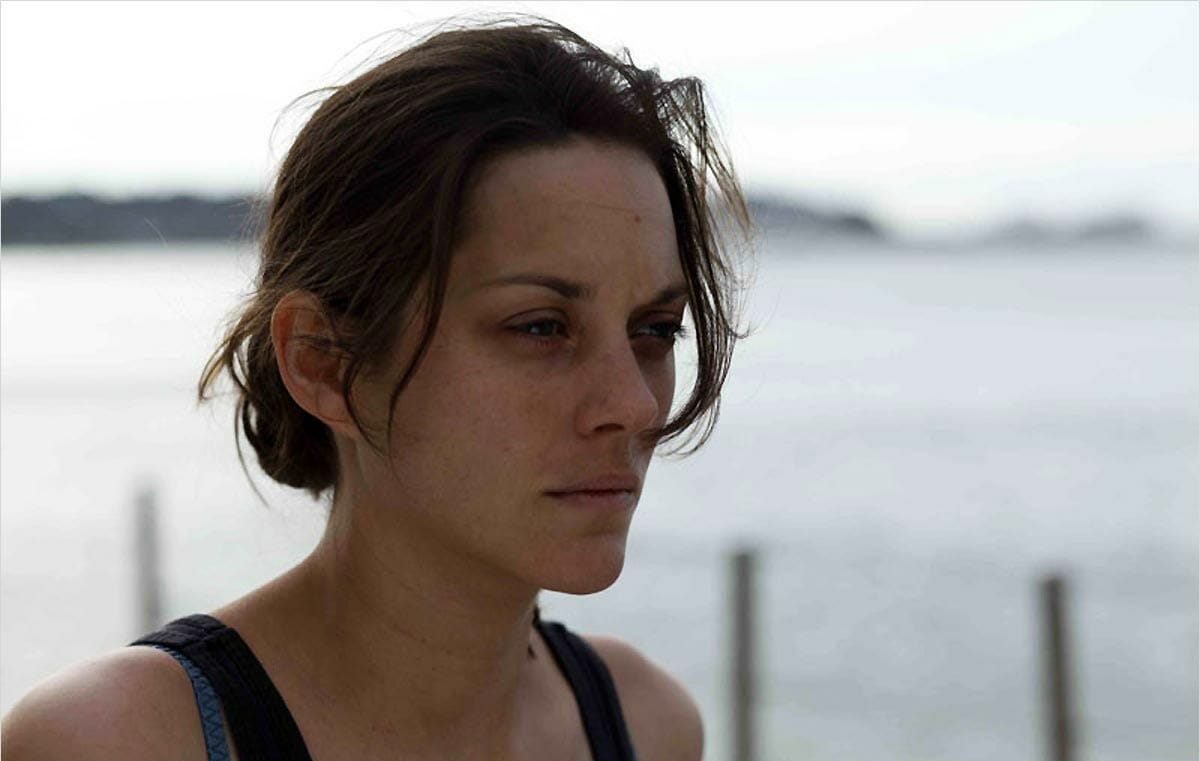
Few films come along and conquer new territory in the way of cinematic storytelling like Rust and Bone. From the opening sequence—a mosaic of images that circle back to the face of a small boy, his lips and nose traced by some unknown finger—to the final scene of a family that almost wasn’t, Jacques Audiard’s latest feature film is a bold and visionary work of art.
Fans of Academy Award-winning French actress Marion Cotillard may be disappointed to find that Cotillard’s character (Stéphanie) is not exactly the central focus of Rust and Bone’s plot. However, any such disappointment will subside when viewers meet Matthias Schoenaerts’s character Ali. The single father (depicted as equally loving and neglectful of his young son, played aptly by newcomer Armand Verdure) meets Stéphanie in a nightclub where he works as a bouncer. Stéphanie is introduced as a bloodied club-goer, recently punched in the face during a brawl. She is dressed in all black and gets called a slut for the better part of her opening scene. Suffice it to say, this is not the vision of Cotillard to which viewers have grown accustomed.
Rust and Bone remains an exciting film throughout precisely because of how the narrative continuously changes, along with the portrayal of the characters. The “slut” getting escorted out of a nightclub is putting on an orca show for thousands (with Katy Perry’s “Firework” blasting in the background) in the next scene. The homeless father and son (Ali and Sam) from the opening sequence are soon living fairly comfortably among family members, with Ali a member of the working class. Audiard never permits his audience to become fully aware of the type of film they are seeing. And yet, there is little time for confusion, as each scene is so tight and so action-packed (either with the quiet action of little Sam devouring a half-eaten piece of fruit from a small garbage bag on a train, or the live action of a beat-thumping, pulsating stadium of people watching killer whales “dance” to Reel to Real’s “I Like to Move It”), the whole experience of the film—as a romance, as a drama, as a comedy—is a movie-goer’s dream.
As Stéphanie struggles with her new life and new appearance (following a tragic accident and the loss of her legs), Ali drifts through his new life in his sister’s home; screwing around on the job, screwing up with his son, and screwing random women. The only thing he is truly good at (or consistent with) is fighting. Even his relationship with Stéphanie is complicated by his inability to give of himself completely.
While this is a familiar storyline in a romantic piece, Rust and Bone is a movie concerned with the corporeal elements, and, unlike your typical romantic drama, the connection between Stéphanie and Ali is almost entirely dependent on their physical relationship. Toni Morrison’s message about bones versus spirit in her novel Paradise—where neither is more important than the other—echoes throughout Audiard’s work. Ali and Stéphanie’s connection is all bones, and there is something simultaneously feeble and eternal in such a connection.
In its treatment of romantic and familial love as both sweet and savage, Rust and Bone has many of the qualities that critics and audiences love about French film (even as it is reminiscent of movies like Fight Club and Million Dollar Baby, and as bloody as a Tarantino revenge flick). It does not care if it moves too quickly, or if it does not commit to one genre, or if it is too unbelievable for words. It only cares to tell a great story and to tell it beautifully, seemingly without pause or hesitation. And even as it mimics the mosaic image we see throughout—a collection of beautiful moments pieced together—in the end, Rust and Bone is finally and absolutely a love story … and a father/son story … and a story of triumph. With standout performances from Schoenaerts, Cotillard (whose various transformations bring on many of the film’s amazing twists and turns), and the entire supporting cast, Rust and Bone is a phenomenal piece of filmmaking.
Director: Jacques Audiard
Writers: Jacques Audiard, Thomas Bidegain, Craig Davidson
Starring: Marion Cotillard, Matthias Schoenaerts, Armand Verdure
Release Date: Nov. 23, 2012